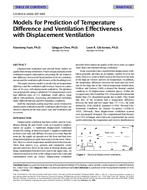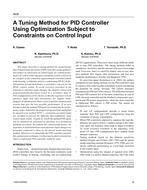The desire for and fascination with tall buildings has been persistent throughout the history of human society. The earliest were built as symbols of greatness and religious monuments, while later tall buildings (because of technological developments) are also practical as working and residential spaces. For many, tall buildings are exciting. They give an image to a city’s skyline and a view to the occupant. Although characterised as having geographically high population densities, the living and working spaces typically have moderate and low occupant densities. However, there can be very high-density situations in entrance and vertical transportation areas. Feelings of crowding and judgements of environmental acceptability in these and other parts of the building can be exacerbated by heat and odour. In general, modern tall buildings are slender and of relatively light construction. The perimeter zone, which is more affected by the weather and more difficult to control for comfort, is a larger fraction of the usable space in a tall building. Further, they can sway with the wind and transmit vibration. Building sway is a cause of anxiety and discomfort in tall buildings, and accelerations from such motions should not exceed the human perception threshold of about 5/1000 the acceleration of gravity.
KEYWORDS: environment, sociology, multistorey buildings, thermal comfort, odour, winds, wind pressure, weather, movement, vibration.
Citation: Symposium, ASHRAE Transactions, vol.97, Pt. 1, New York 1991
Product Details
- Published:
- 1991
- Number of Pages:
- 5
- File Size:
- 1 file , 670 KB
- Product Code(s):
- D-18607


